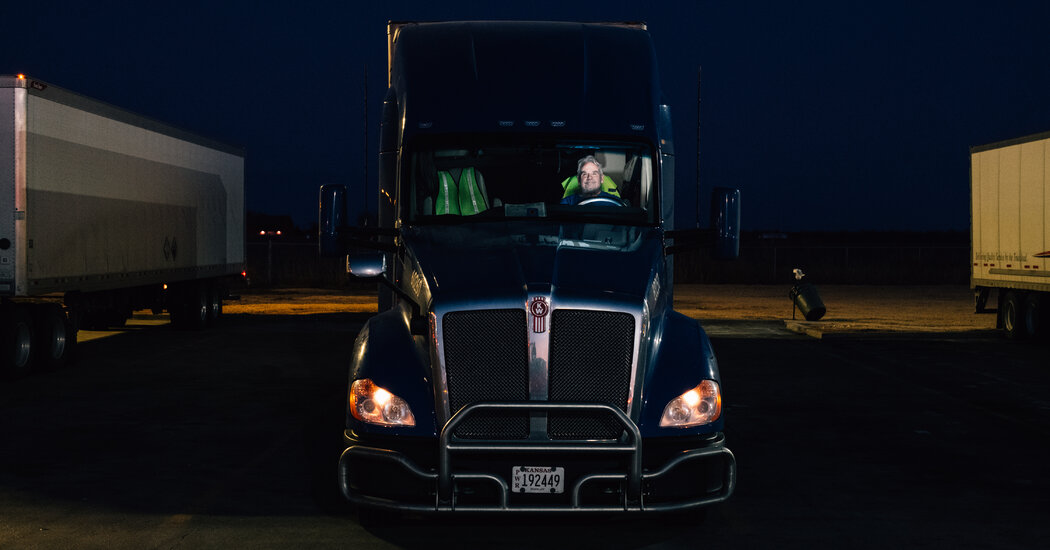
Every truck stop is like a shrine seeking to ward off the demons of fatigue. Refrigerated display cabinets are stocked with supercaffeinated energy drinks whose brand names attest to the trading of long-term health for a short-term jolt: Red Bull. Java Monster. Bang.
“It’s a deal with the devil,” says Mr. Graves, who sticks with coffee.
At the warehouse, his instructions direct him to Building 2, which he assumes means the second building he encounters. But after climbing out of the cab and limping up a staircase, a receptionist directs him back to the first building.
He handles this with studious cheer.
“Good morning, ma’am,” he says to every woman on the other side of the plexiglass dividers at every warehouse, savoring the most rudimentary human connections. “Are you doing OK?”
He makes a point of learning the name of the woman who pours him a coffee at a Burger King — Bailey — and talks about her, about the kindness in her glance, for several hundred miles after.
“I try to give everyone a smile,” he explains, compensating for the others on the road. “Drivers are generally snarly because they are tired, they’re hungry, and their schedules suck, and they tend to take it out on other people.”
He revels in challenging popular stereotypes of the truck driver, speaking with the precise elocution of a college professor. He discarded his CB radio years ago, weary of hearing the crude and sometimes hateful chatter dispensed over crackly airwaves. He starts his morning listening to the global news report from BBC World Service in London, and then switches to light jazz or classical.
“I love Brahms,” he says, as he winds through Kansas.
He celebrates his constant motion as liberation from the cubicle life that confines many workers. But as he hews to the interstates, what he mostly sees are the service corridors of American life, a generic blur of gas stations, fast food restaurants and liquor stores.







